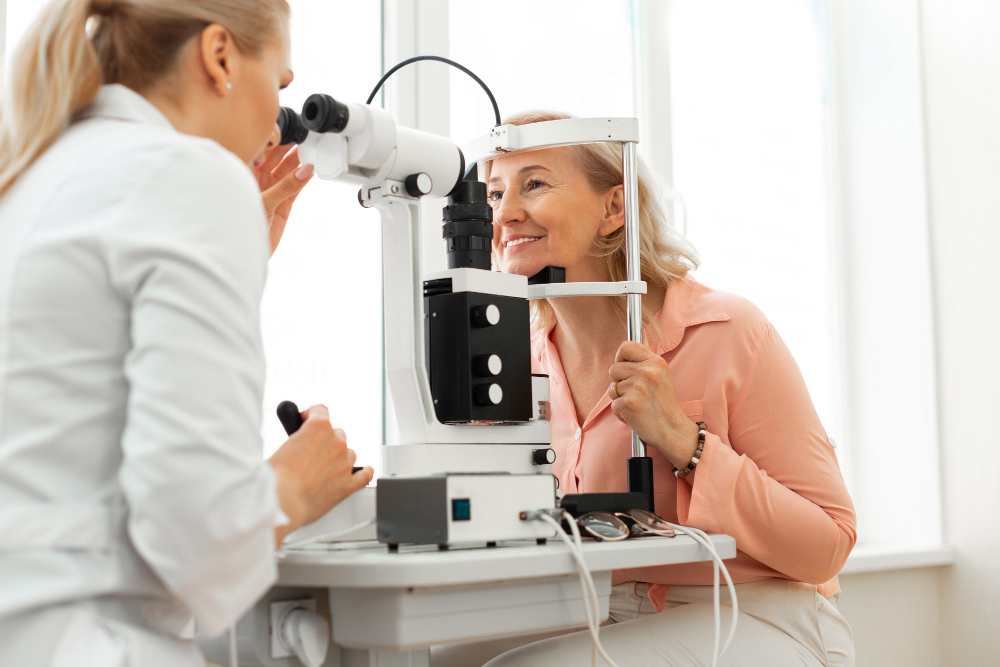Our eyes are a valuable gift, giving us the capacity to see and experience the world. To guarantee our eyes stay sound and our vision remains clear, it’s vital for know how and when to deal with them. In this far reaching guide, we will investigate the significance of eye care, down to earth ways to keep up with eye wellbeing, and the ideal times to make a move to safeguard your vision.
Why Eye Care Matters
Our eyes are intricate organs that require consistent care to function optimally. Failing to prioritize eye health can lead to various vision problems and potentially serious eye diseases. Here are some reasons why eye care matters:
- Vision Preservation: Regular eye care can help maintain clear vision, preventing or minimizing the need for corrective lenses.
- Eye Disease Prevention: Routine eye check-ups can catch eye diseases like glaucoma or macular degeneration early, when they are most treatable.
- Comfort and Well-being: Good eye health ensures comfort and a high quality of life. It prevents issues like dry eyes and eye strain.
- Aesthetics: Healthy eyes contribute to your overall appearance and can enhance your confidence.
- General Health: Some eye conditions can be indicative of underlying health problems, so eye care can also be a preventive measure for overall well-being.
How to Take Care of Your Eyes

Taking care of your eyes involves various practices and habits that promote and maintain eye health. Here are some key steps to consider:
- Regular Eye Exams: Schedule comprehensive eye exams with an optometrist or ophthalmologist. They can detect vision problems and eye diseases early.
- Proper Nutrition: A diet rich in antioxidants, vitamins, and minerals like omega-3 fatty acids can support eye wellbeing. Incorporate food varieties like mixed greens, fish, and citrus natural products.
- Wear UV-Protective Sunglasses: Protect your eyes from unsafe bright (UV) beams by wearing shades with 100 percent UV insurance.
- Eye Safety: While participating in exercises that could represent a gamble to your eyes (e.g., sports, carpentry), utilize fitting defensive eyewear.
- Blink Regularly: Blinking helps prevent dry eyes. If you spend long hours looking at screens, practice the 20-20-20 rule: every 20 minutes, require a 20-second break to take a gander at something 20 feet away.
- Stay Hydrated: Proper hydration is fundamental for keeping up with solid eyes. Hydrate day to day.
- Quit Smoking: Smoking increases the risk of creating eye sicknesses like waterfalls and age-related macular degeneration.
- Manage Screen Time: Adjust screen settings to reduce glare and eye strain. Additionally, take frequent breaks from screens to rest your eyes.
- Get Adequate Sleep: Quality sleep is crucial for overall health, including your eyes. Ensure you get 7-8 hours of restful sleep each night.
- Avoid Rubbing Your Eyes: Rubbing your eyes can introduce harmful bacteria and potentially damage the cornea. If your eyes itch, use clean tissue or eye drops.
When to Take Care of Your Eyes

While many aspects of eye care are ongoing, there are specific times and situations when you should pay extra attention to your eye health:
- Childhood: Start early with pediatric eye exams. The American Optometric Association recommends the first eye exam at 6 months, then at age 3, and before starting school.
- Teen Years: Adolescents may need vision correction, and this is an excellent time for comprehensive eye exams.
- Adults: Standard eye tests are fundamental for grown-ups, with the recurrence relying upon age and hazard factors. As a basic principle, each 2-4 years for a long time 40-65, and each 1-2 years for those more than 65.
- Pregnancy: Hormonal changes during pregnancy can influence vision, so it’s prudent to have an eye examination during this period.
- Aging: As you progress in years, the risk of eye illnesses like waterfalls, glaucoma, and age-related macular degeneration increments. Customary eye tests have become considerably more basic.
- Symptoms and Changes: If you notice sudden changes in your vision, such as blurred vision, flashes of light, or eye pain, seek immediate medical attention.
Conclusion
Dealing with your eyes is a deep rooted responsibility that includes standard eye tests, a sound way of life, and defensive measures to keep up with clear vision and generally speaking eye wellbeing. It’s fundamental for start early, stay reliable, and be careful about any progressions in your vision. By focusing on your eye wellbeing, you can keep on partaking in the magnificence of the world and keep a great of life over time.


